

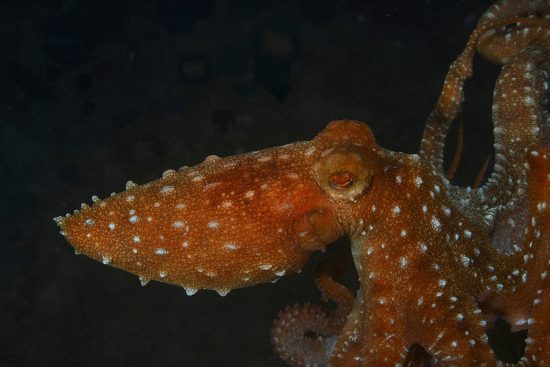
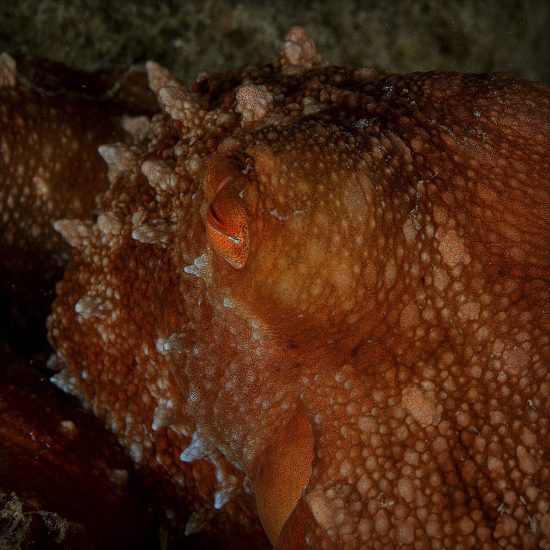
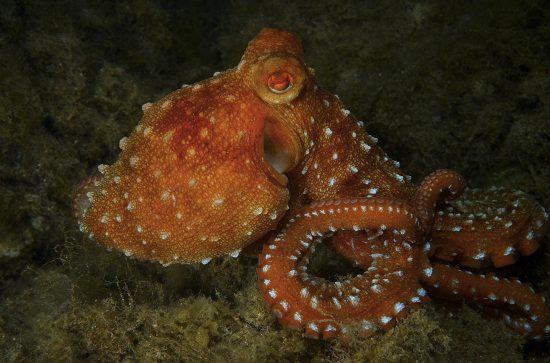
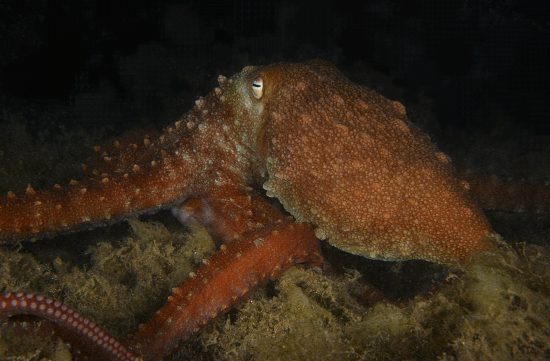
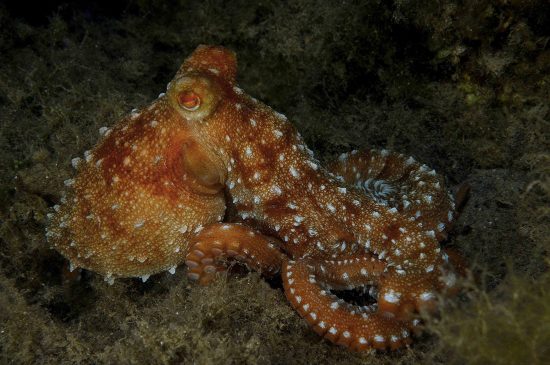
The white-spotted octopus lives predominantly in the shallow waters of the Mediterranean and Caribbean Seas, but can sometimes be found in the eastern Atlantic Ocean.
This rare species is characterized by long arms, reaching seven times the size of their bodies. The first pair of arms is almost a meter long, much longer than the remaining three pairs.
This octopus usually shares its habitat with its much more famous cousin, the common octopus (Octopus vulgaris).
The white-spotted octopus is more of a night owl, active exclusively at night, and generally less active and aggressive than the common octopus.
The spotted octopus is more of a picky eater than its cousin. Both are versatile hunters, using their arms to "feel out" the sandy bottom. They even use their siphon to jet water, like a water cannon, to shoot at the sand and expose prey buried inside.
The spotted octopus's secret weapon is its unique hunting technique among the coral reefs. This octopus wraps its mantle around a coral head and probes with its arms among the branches. This hunting strategy has made the spotted octopus quite a socialite. Many small predatory fish seem to follow them around, waiting for an opportunity to catch some of the prey that the octopus flushes out of their coral hideouts.
The octopus is not always the hunter but sometimes also the hunted. It uses a variety of techniques to fend off predators. Besides its famous camouflage, it may use ink or try to appear bigger in size.
Like many other species of octopus, the white-spotted octopus literally gives its life for its offspring. After the courting ceremony and mating, the female lays eggs and completely stops eating. She guards the eggs constantly and diligently until they are hatched and dies shortly afterwards.
Baby octopuses start off their lives as tiny planktonic larvae roaming the open waters. Once they grow into fully developed adult octopuses, they commit to a life on the seafloor.
The common octopus is hunted all over the world, and is considered a staple seafood, however, the white-spotted octopus is rarely used for human consumption as reports show is is not edible and can even cause some digestive problems.
Written by Lena Ilic, B.Sc., Marine Biologist
Photos by Nikola Doder, S.D.T. Svet Ronjenja
 Ivana and Janez
Ivana and Janez 1st December 2022
1st December 2022